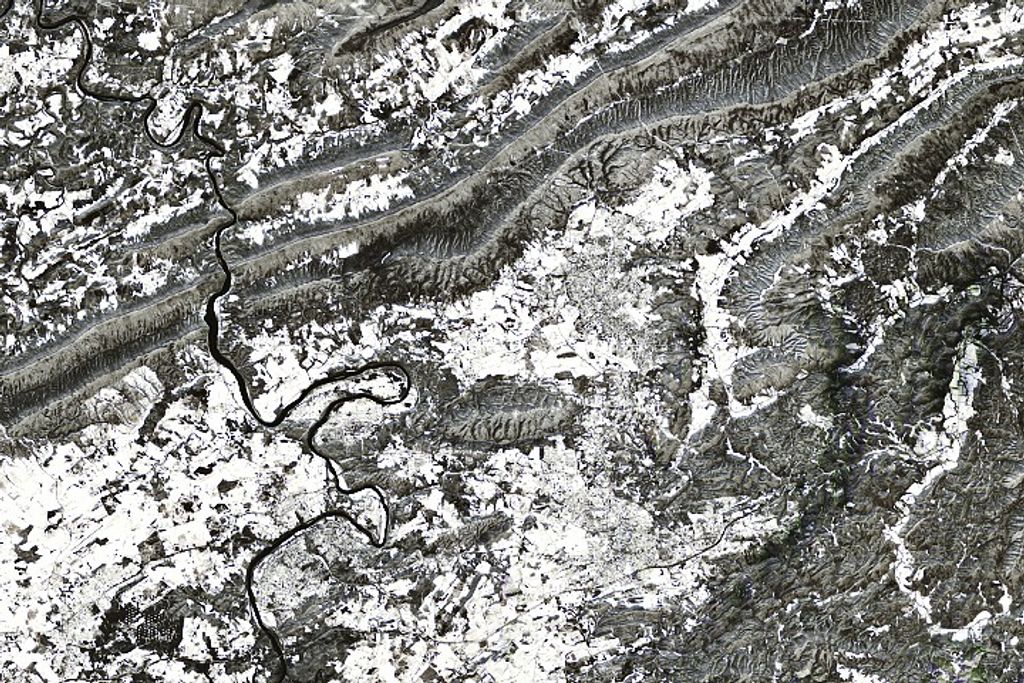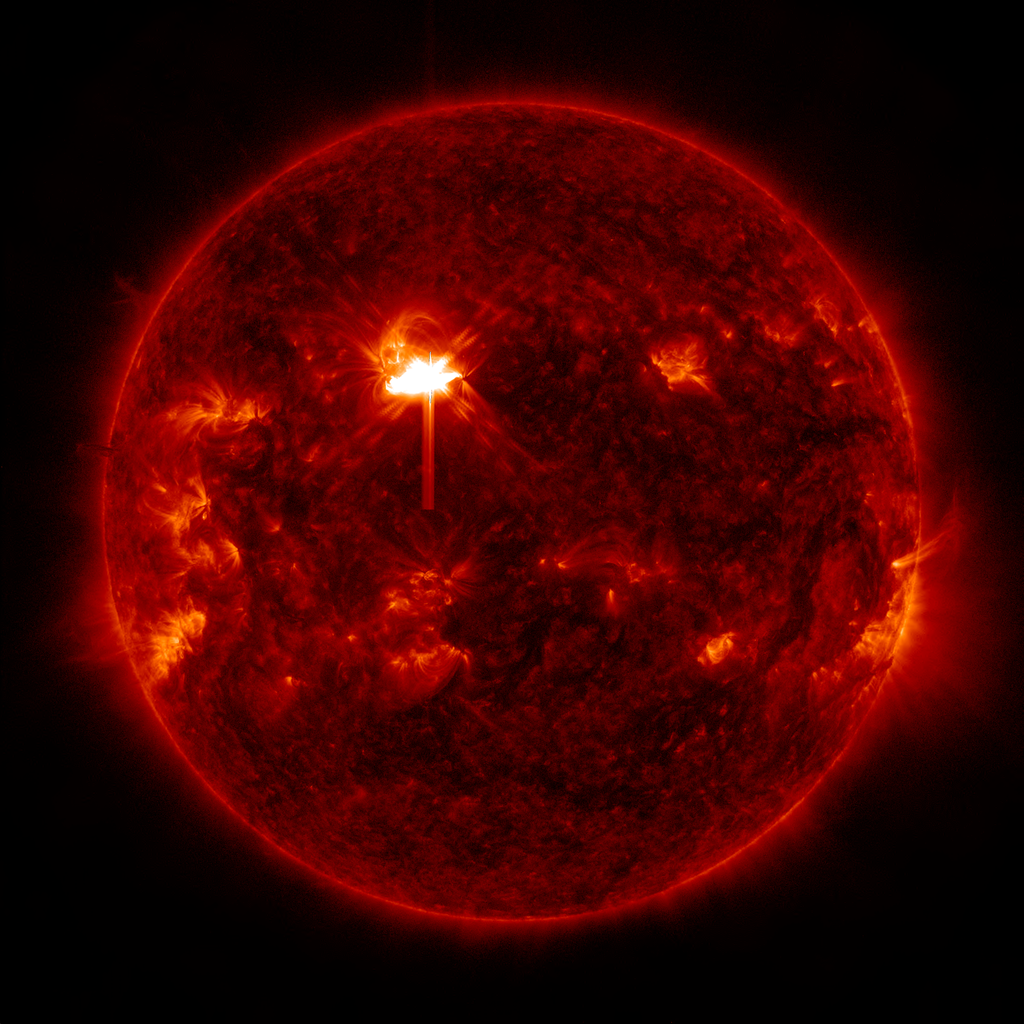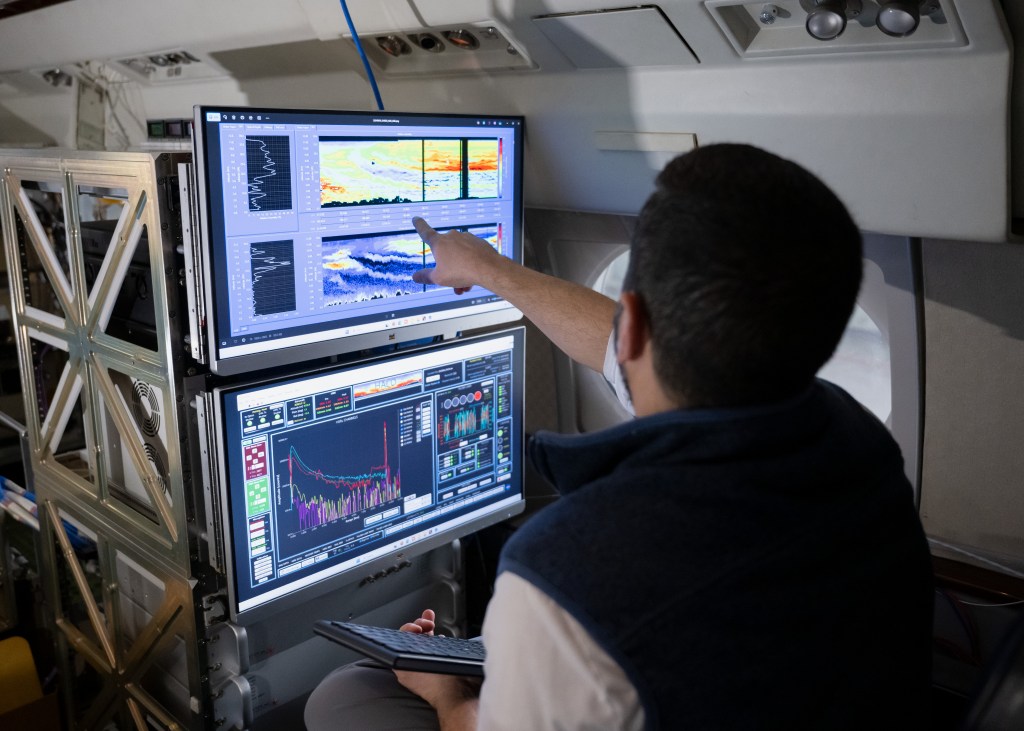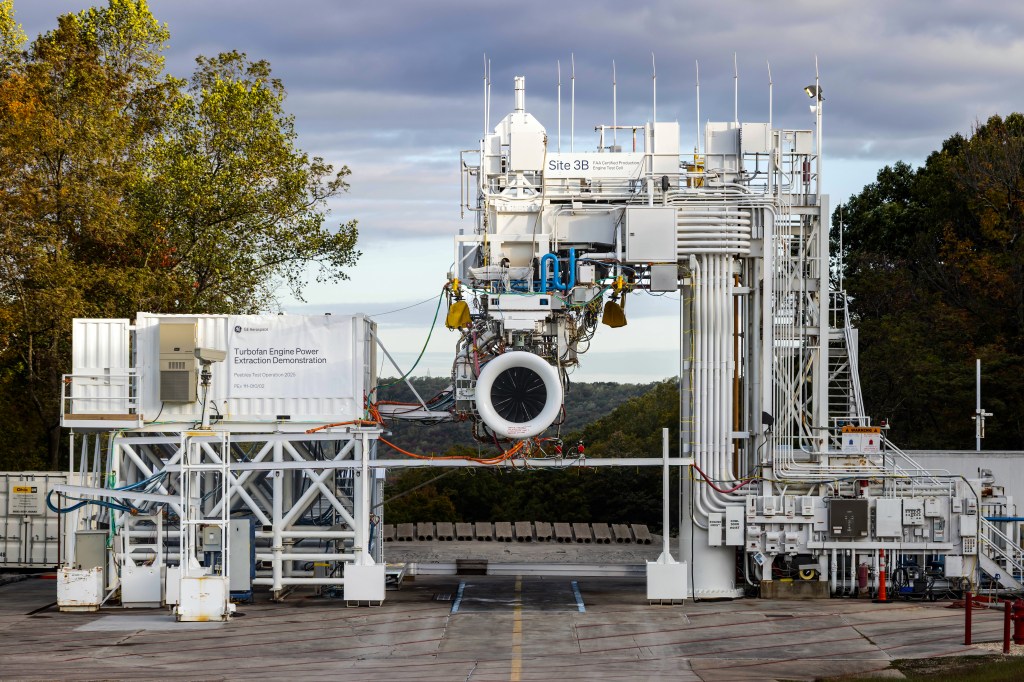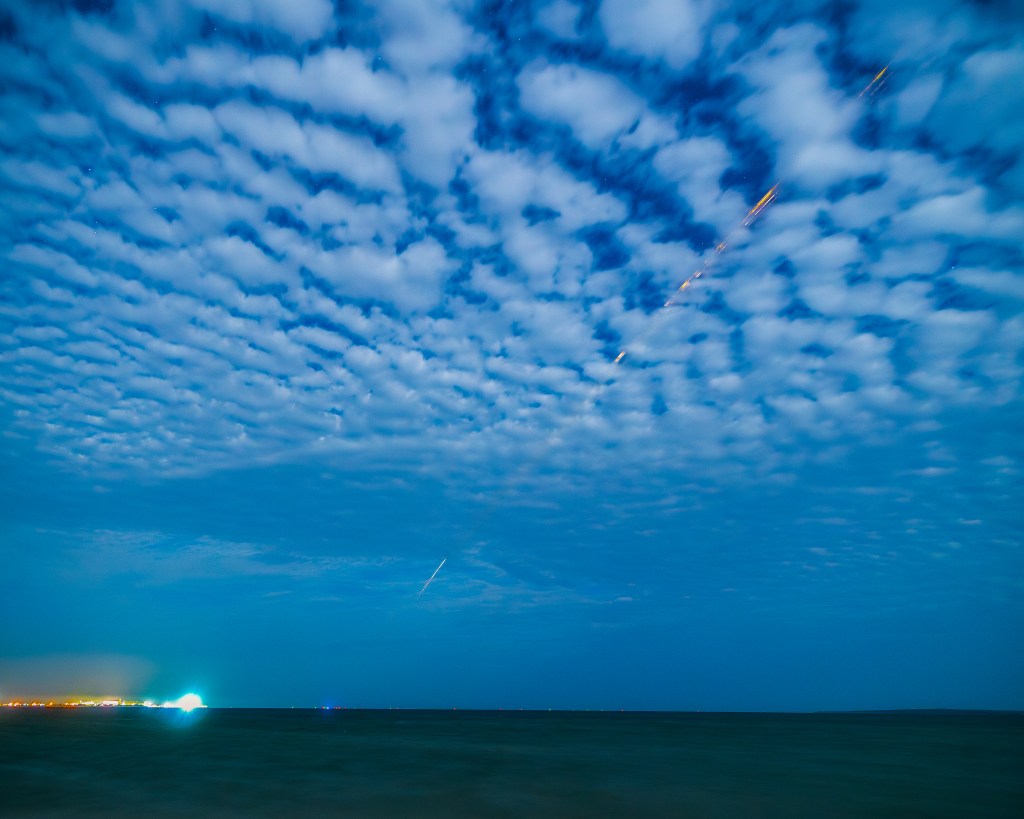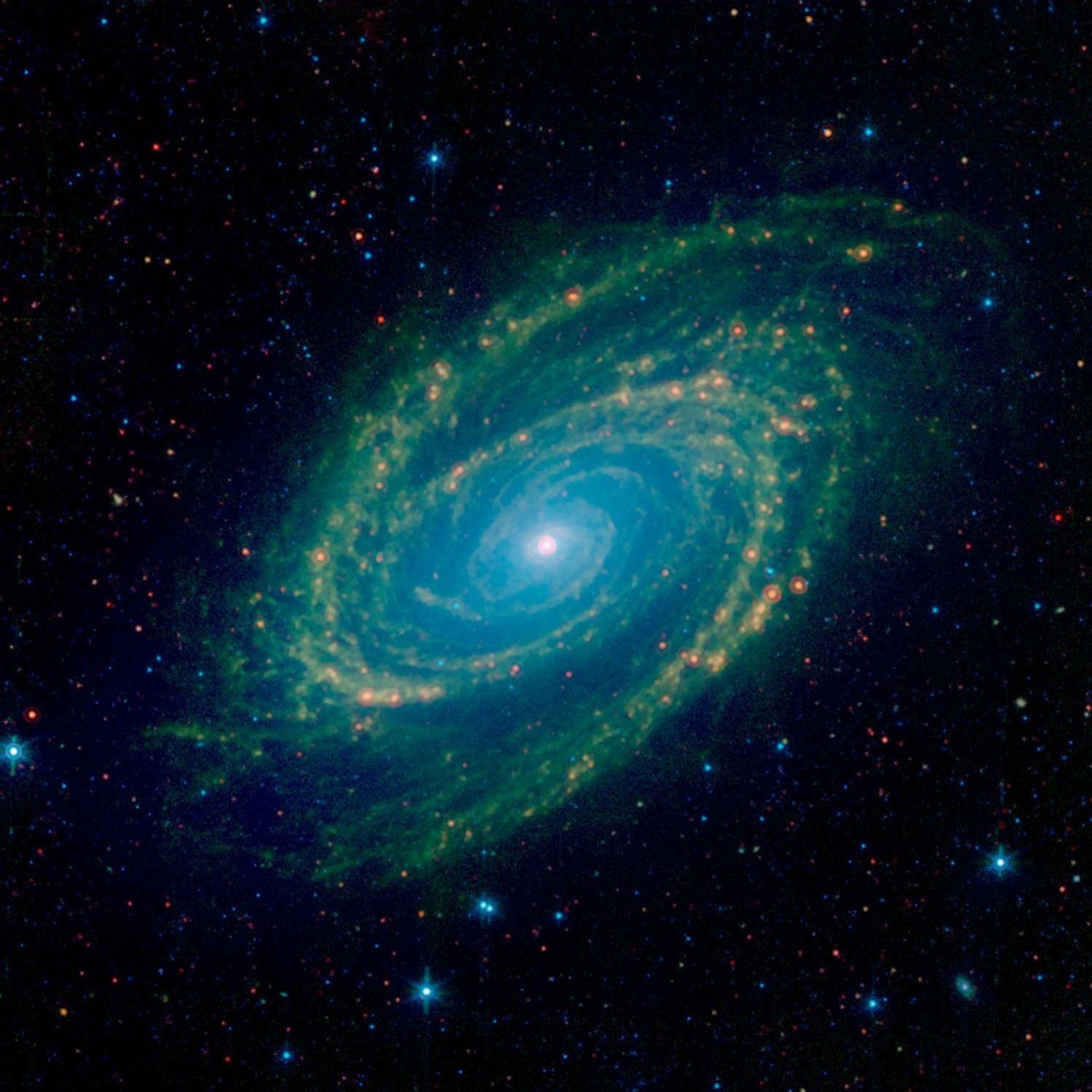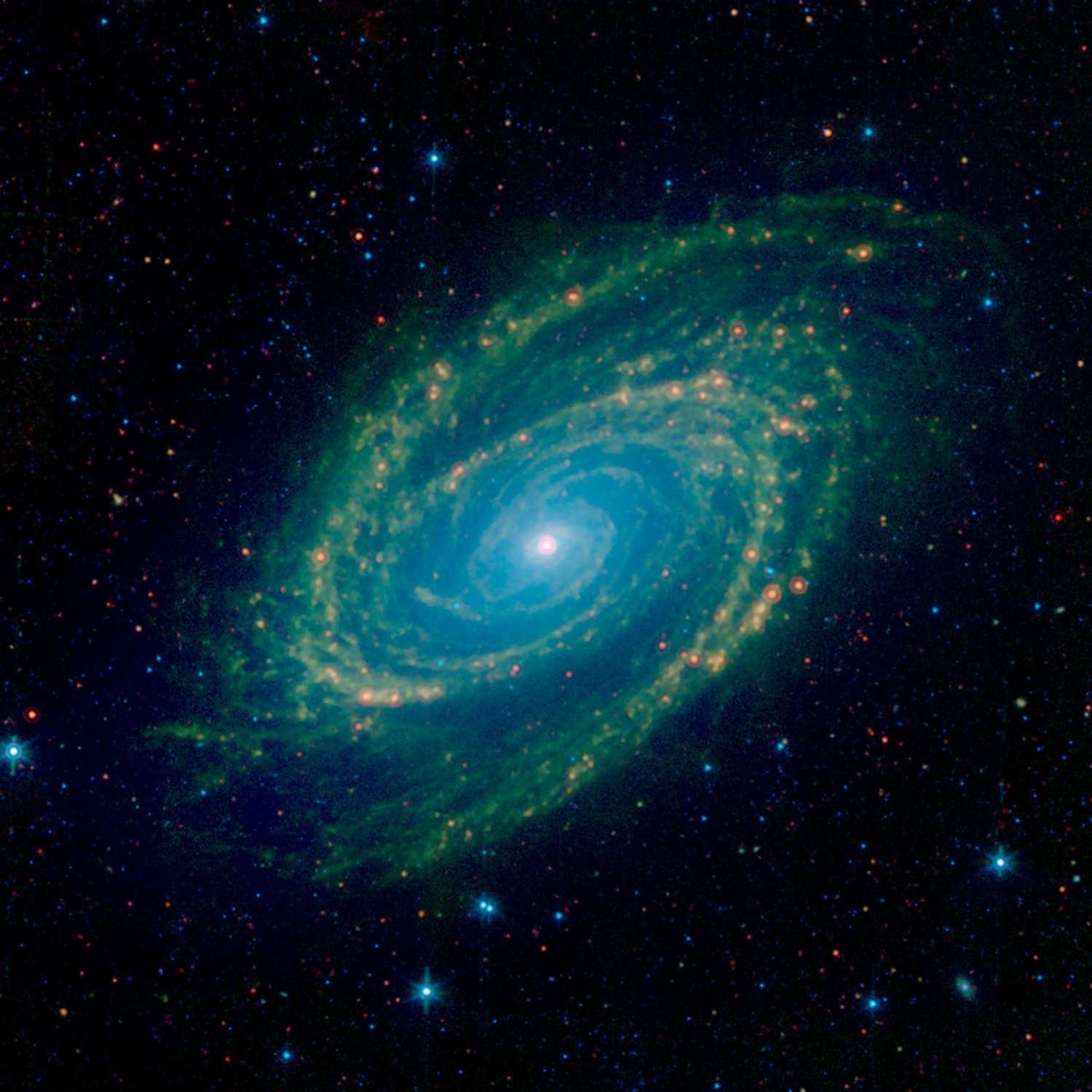An Infrared View of the M81 Galaxy
September 4, 2019
| Credit | NASA/JPL-Caltech |
|---|---|
| Historical Date | September 4, 2019 |
| Language |
|
Located in the northern constellation of Ursa Major is nearby galaxy Messier 81. M81 was one of the first publicly released datasets soon after the launch of NASA's Spitzer Space Telescope in August 2003. On the occasion of Spitzer's 16th anniversary, the mission revisited this iconic object with extended observations and improved processing, as shown in this image.
More information: https://www.nasa.gov/image-feature/an-infrared-view-of-the-m81-galaxy










